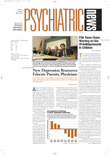How do Americans view participation in research having to do with the genetics of mental and physical illnesses?
Quite favorably, a pilot study suggests. It was headed by Laura Roberts, M.D., chair of psychiatry at the Medical College of Wisconsin and a bioethics professor for the college's Health Policy Institute. Results appeared in the January-February Comprehensive Psychiatry.
Roberts and her colleagues developed a written survey to explore people's attitudes toward participation in research pertaining to the genetics of mental and physical illnesses. The survey did not ask respondents whether they would be willing to participate in such research.
The investigators then pilot-tested the survey on 63 subjects. These were healthy adults working in two settings—an academic medical center (the University of New Mexico Health Sciences Center) and a large laboratory dedicated to scientific and defense development (the U.S. Department of Energy's Sandia National Laboratories). Respondents ranged in age from 21 to 65 years and included a similar number of men and women. Most were Caucasian, and about a third were of Hispanic background. They worked in technical, professional, or administrative positions.
Results from the pilot test revealed that respondents viewed participation in research concerning the genetics of mental and physical illnesses as acceptable for all 12 subpopulations inquired about: healthy people, people with serious mental illnesses, people with serious physical illnesses, members of ethnic minorities, elderly people, health care employees, people in the military, government employees, pregnant women, prisoners, people living in nursing homes or other health care facilities, and children.
Further, respondents rated such research as most acceptable for individuals with serious physical or mental illnesses and least acceptable for vulnerable groups such as prisoners, individuals in health-care facilities, and children.
Respondents indicated that they saw more “positives” than“ negatives” in genetic research participation. They agreed that such participation would more likely entail psychological risks than physical risks.
Most respondents said that people should consider participating in genetic research if it could benefit family members, coworkers, or society, but contended that people with an elevated risk of genetic illness should be especially willing to participate.
“This high level of support for genetic inquiry by working persons was unexpected,” Roberts and her team concluded in their report.“ Another striking result was the pattern of perspectives offered by men and women. Male workers rated the genetic research importance, involvement, positives/benefits, and motivations more highly than did female workers. This is very interesting because women in other studies have been shown to be more supportive than men of clinical research participation.”
Roberts told Psychiatric News that the study results“ highlight the importance of genetics and genetically based health issues for working people. They also demonstrate the rather remarkable level of openness and excitement about participation in genetic research—and perhaps human clinical research or scientific work more generally.”
The project was funded by the U.S. Department of Energy, the National Institute on Drug Abuse, and the National Institute of Mental Health.
The study, “Employees' Perspectives on Ethically Important Aspects of Genetic Research Participation: A Pilot Study,” can be accessed online at<www.sciencedirect.com> by clicking on “Browse A-Z of journals,” then “C,” then Comprehensive Psychiatry. ▪
